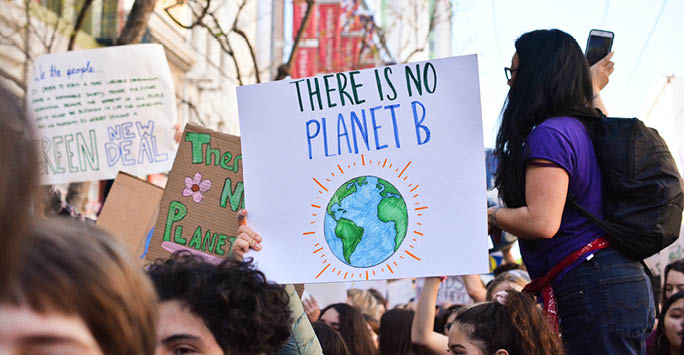
Runaway global heating threatens most life on earth. If you think this is an over-statement, check the last few reports from the Intergovernmental Panel on Climate Change and consider that humanity is increasing its fossil fuel consumption, not decreasing it.
Even the level of heating that has already happened is enough to send thousands of species to extinction and to disrupt weather all around the world. Ice disappears from mountaintops, Greenland, and large areas of Antarctica, raising global sea levels. Temperature records are broken, then broken again. Nothing is normal anymore.
And the mainstream media are not covering it very well. There is a glaring absence of plain speech, an absurd hesitation to state the causal connections that are totally implausible to deny. Perhaps worst of all, the conversation focuses on what is happening now with rare mention of what greater horrors are overwhelmingly likely in the years to come.
We keep on using fossil fuels when we know full well that they are deadly, and there are readily available alternatives. Is this gaping hole in the media coverage the only reason for that? No, but it is part of it.
At Extinction Rebellion Radio, my co-host Alycee Lane and I cast our thimble into the ocean of the public discourse, trying to bring some perspectives to world events that you won't hear in the mainstream news media. We bring on activists who are fighting, sometimes getting arrested or trying out new forms of protest. We bring on experts who have specialized knowledge of some aspect of the climate crisis, or something affected by it. Guest hosts and guest commentators occasionally contribute. We share our own perspectives in reaction to climate-related news, which is quickly becoming most news.
The show is an extension of our academic and activist work. I teach Climate Change and Society at the University of Liverpool and previously wrote a book on activism (The Social Order of Collective Action). Alycee has published and podcasted about climate disaster for many years, notably in her book The Wretched of Mother Earth: The Handbook for Living, Dying, and Nonviolent Revolution in the Midst of Climate Change Catastrophe.
Extinction Rebellion is an international non-violent direct-action movement that presses for transformative change addressing the climate emergency. It has many chapters that are mostly independent of one another. There is no central control or unified ideology. What one person says or does in the name of Extinction Rebellion does not bind others. This radio show is the only regular news media access that Extinction Rebellion has in the United States.
Extinction Rebellion's Northeast Regional Media and Messaging Working Group, in collaboration with the San Francisco Bay Area chapter, comprises most of the large active chapters as of 2020. They went through a consensus process that nominated Lane and myself as co-hosts and co-producers of the show. Broadcasts began in late 2020. Just as Extinction Rebellion in the United States is separate from the U.K. and other countries, the show is separate from Extinction Rebellion's U.K.-based and Netherlands-based radio programs.
Our show is distributed in two formats. The first is a nationally syndicated weekly broadcast through Pacifica Radio Network. This is a longstanding listener supported network with no advertising. It has played a major historic role as a left-oriented supplement to mainstream news media (the Encyclopedia Britannica's overview is here). Broadcast syndication means that several local stations, in markets large and small, may take episodes on a week-by-week basis. We have been on the air in Iowa, Florida, Maine, New Mexico, New York City, upstate New York, Ohio, Texas, and more. Currently our highest-profile slot is Thursdays at 5:30 p.m. on WPFW 89.3 FM in Washington, D.C., beaming climate analysis in prime radio time into the ears of politicos who probably do not want to hear our message.
The second format is podcast. Typically podcast episodes are lightly re-edited or combined radio broadcasts. Given today's patterns of media consumption, the podcast has the greatest potential for audience growth, but requires more promotion than the co-producers have capacity to do themselves.
Volunteers are welcome. If you're interested, please email: matthew.kearney@liverpool.ac.uk
The podcast is free. Find it on many podcast apps like iHeartRadio, Google Podcasts, or online here:
www.spreaker.com/show/extinction-rebellion-radio